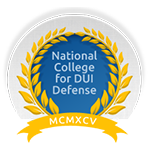
Most people know and understand the importance of having a will. But many people do not understand or consider another important tool for estate planning and asset protection – forming a trust.
A trust is an arrangement that allows you, as “grantor” or “settlor,” to place certain property “in trust” for your loved ones, who will be known as “beneficiaries” under the term of the trust document. When you create a trust, you appoint a “trustee” to hold the property for the benefit of your beneficiaries, under terms and subject to conditions that you determine. A trust is a flexible arrangement that allows you to specify exactly who can benefit from property.
When a trust is created, the trustee takes legal title to and management power over the trust property. The trustee stands in a “fiduciary relationship” to the trust property and the trust beneficiary, generally meaning it must act for the benefit of the beneficiaries and in accordance with the trust document.
There are several good reasons for you to consider forming a trust as part of your estate planning:
- Maintain Control Over Your Assets – A trust allows you a certain level of control over your estate that a will cannot. Under a trust you can dictate how, when and under what circumstances your assets will be distributed to your beneficiaries. You can, for example, transfer your real estate into a trust providing that you and your spouse have a life estate in that real estate and then passing that property to your children upon your death. Also, if you have young children, you can delay the receipt of their inheritance until they reach a certain age, achieve certain milestones, (such as graduation or marriage) or avoid prohibited activities. If your beneficiary is suffering under a physical, mental, or legal disability, you can set the terms for and decide which assets will be available for their care and maintenance.
- Avoid Probate – A properly structured trust can avoid probate of large portions of your estate or even your entire estate. This allows for a smooth and quick transfer of assets from you to your beneficiaries without the cost and paperwork involved in the will probate process.
- Serving as a Will Substitute – Whether you transfer your property over to your trust during your life or upon your death, you can effectively treat your trust as the main document that will provide how your property will be distributed after your death. You can also designate property or assets such as your life insurance policy and your retirement accounts as beneficiaries and have those funds be transferred over directly to your trust upon your death and then distributed in accordance with the terms of your trust. The trust agreement can then direct the way your property is managed and distributed.
- Privacy – Unlike your will, which must be filed on record upon your death, a trust is usually not part of the documents recorded publicly. Therefore, you maintain a level of privacy regarding your estate property and distribution of assets. There are some exceptions as it relates to filing your inheritance tax return.
- Asset Protection – A properly structured trust can protect trust assets from creditors and judgments.
- Tax Planning – Avoid the paperwork and taxes involved in the inheritance tax requirements. For estates in excess of federal estate tax levels, a trust can be a powerful tool to avoid estate federal estate taxes.
- Providing Support for Individuals with Special Needs – A “special needs trust,” is a trust that can provide assets for the care and maintenance of a disabled individual without jeopardizing his or her right to public benefits, such as Supplemental Security Income (SSI) or Medicaid.
- Charitable Giving – As the settlor, you can use your trust to fund charitable causes important to you.
- Taking Care of Pets – You can structure your trust in manner to provide for the care and maintenance of your pets.
There are a number of different trust structures that may work for you, depending on what you want to accomplish. By talking with a qualified attorney, like Val DiGiorgio of Omnis Law Group, and your accountant you can determine whether a trust is the right move for your estate planning and what structure is best for you. Val can be reached at VFD@Omnislawgroup.com, you can contact the firm online, or call 484-81-OMNIS to set up an initial consultation.









